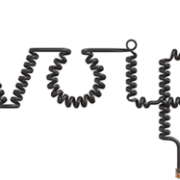Voice Over IP Insecurity
The use of Voice Over IP (also known as IP telephony, or VoIP) has brought huge benefits to businesses, as well as potentially harmful implications. The financial and productivity benefits of VoIP technology have been drawing companies in for many years. It is a cost-effective method of communication, as well as efficient, with forwarding, remote operation and conferencing aspects all now commonplace in offices across the country and the world. It is also a fantastic way for cyber criminals to eavesdrop on conversations and steal valuable data from your company.
The process of hacking into a VoIP network is, regrettably, a simple one in many cases. The hacker simply dials into a Private Branch Exchange (PBX), a telephone system that switches calls between users in an enterprise on local lines, as well as external ones, and supplies previously acquired credentials. A company without security in place is then open to the criminal having access to their network, meaning that they can monitor and record your calls, collecting all the data and potentially using it to their advantage if they happen to get hold of something juicy.
Equally damaging can actually be the way that the hacker uses your credentials to gain access to your phone to make outgoing calls. By calling through your network, the phone charges accrued are then billed to you. Notable cases that have been recorded show that criminals have either used this method to make long distance calls that are incredibly expensive for the company, or even in some cases have posted the credentials online with instructions on how others can access your VoIP connection and make calls ‘free of charge’.
When it comes to VoIP security, it is important that you approach your Voice Over IP connection in the same way that you do your data network. Whether you use a hosted IP phone, or keep an onsite system, there are simple and secure ways of keeping your network protected. You are able to restrict certain call types, for instance, by preventing certain devices, users, or even times of the day. You can set up firewalls and intrusion prevention systems (IPS) to track unusual voice activities. You can even encrypt sensitive voice traffic, again using specific criteria to make sure that certain areas of your connection are protected.
Each of these security features can and should be installed by a professional Voice Over IP provider, who is able to determine your specific weak points and ensure that those are the areas targeted by your protection software. Digital Pathways have the expertise to be able to provide this level of security and ensure that your data and network remain yours. To find out more simply get in touch today to speak to one of our team and find out what measures we can take to protect your IP telephony.





